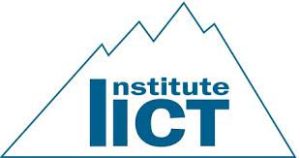- Strategic Guidance
The Board guides the project’s strategic direction, offering insights and advice to advance knowledge and innovation in its scientific domain.
- Risk Management
The Board assists in identifying any unforeseen risks and challenges that may arise during the project’s execution. Board members help analyze strategies to mitigate these risks and overcome any challenges.
- Complementarity in Scientific Expertise
Board members are renowned experts in the project’s field and offer their insight and experience to review research plans, methodologies, and directions.
- Hiring and career advising
The Board’s hiring panel, made up of esteemed academics, works together with the ERA Chair holder to carefully assess the applications of research personnel up for consideration. This process guarantees that only the most qualified researchers are chosen for the role, ensuring the success of VIBraTE.
- Outreach and collaboration
The Board helps share and promote project results with the science community, industry, policymakers, and the public and connects us with potential partners to increase project impact and visibility.
Galia Angelova

MSc.: Faculty of Maths and Mechanics, Sofia University “Kliment Ohridski” (1979).
PhD: Computer & Automation Institute, Hungarian Academy of Sciences MTA SZTAKI (1988).
Doctor of Sciences: Bulgarian High Attestation Commission (2010).
Position: Professor in Computer Science at the Institute of Information and Communication Technologies, Bulgarian Academy of Sciences.
Research Expertise: Artificial Intelligence, Natural Language Processing with strong inclination towards building practical applications. Galia Angelova initiated the first activities in automatic processing of clinical patient records in Bulgarian language, together with medical experts from the University Specialised Hospital for Active Treatment of Endocrinology (USHATE), Medical University Sofia. In 2015 the group generated automatically a National Diabetes Register, based on more than 300 mln outpatient records submitted to the Bulgarian National Health Insurance Fund (NHIF). Today the Register is hosted by USHATE and updated yearly with information extracted automatically from NHIF outpatient records for the respective year.
Projects: Coordinator or principal investigator of more than 25 projects. Coordinator of AComIn “Advanced Computing for Innovation” (2012-2016), a 3.2 MEuro grant with the European Commission, FP7 Capacity, included in the European Commission’s book “Achievements of FP7: examples that make us proud“.
Typical publications:
Boytcheva, S., G. Angelova, Z. Angelov, D. Tcharaktchiev. Mining comorbidity patterns using retrospective analysis of big collection of outpatient records, Health information science and systems 5, 1-9, 2017.
Dicheva, D., C. Dichev, G. Agre, G. Angelova. Gamification in education: A systematic mapping study. Journal of educational technology & society 18 (3), 75-88, 2015.
Tchraktchiev, D., G. Angelova, S. Boytcheva, Z. Angelov, S. Zacharieva. Completion of structured patient descriptions by semantic mining. Patient safety informatics, 260-269, IOS Press, 2011.
Prof. Dr. Dumitru Baleanu, PhD

Ph.D. Physics, Institute of Atomic Physics, Romania 1996
Thesis: Contributions to the study of spaces with spin variable M.Sc. Physics, Faculty of Physics, University of Bucharest, Romania 1989
Thesis: Methods of quantization in quantum field theory B.Sc. Physics, University of Craiova, Faculty of Natural Sciences, Romania,1988
Research expertise: Fractional dynamics and its applications in science and engineering, fractional differential equations and their applications, discrete mathematics, control theory, mathematical physics, soliton theory, Lie symmetry, dynamic systems on time scales, the wavelet method and its applications, quantization of systems with constraints, the Hamilton-Jacobi formalism, geometries admitting generic and nongeneric symmetries.
Projects:
- OI174001 – “Dynamics of hybrid systems with complex structures. Mechanics of materials” with project leader: Dr. Katica Hedrih, 40 participants from various countries, supported by the Ministry of Educations, Sciences and Technological Development of Republic of Serbia
- Group of relationship between theoretical chemistry and experimental probability: Project title: On similarities in Infrared Spectra of Tetra-substituted Metallophthalocyanine Derivatives PI: Associate Prof. Dr. Tamer Ezzat Youssef Moustafa CoI: Prof. Hamad Al Turaif CoII: Prof. Dumitru Baleanu Grant DSR:135-138-D1435
- Research Group: Modeling and Simulation of Complex Systems: Project Title: New Efficient Spectral Techniques for Numerical Solutions of Fractional Order Partial Differential Equations Arising in Mathematical Physics
- Research Group: Modeling and Simulation of Complex Systems: Project title: Efficient spectral methods for solving fractional differential equations on a semi-infinite interval PI:Assoc..Prof. Ali H. Bhrawy International researcher: Professor Dumitru Baleanu
- Research Group: Modeling and Simulation of Complex Systems: Project title: Fractional Dynamics of Complex Systems PI: Professor Abdulrahim Al-Zahrani CO I:Professor Dumitru Baleanu COII: Professor Yahia Alhamed COIII: Professor Adnan Zahid Grant DSR: GR 34- 11 King Abdulaziz University, Jeddah,Saudi Arabia/48000 USD 2013- 2014
- COST Action CA15225 “FRACTAL – Fractional-order systems; analysis, synthesis and their importance for future design” EU COST Project 2015- 2019 Kesirli Dinamik Modeller ve Uygulamaları (in Turkish) PI: Dr. Dumitru Baleanu TUBITAK project 2018- 2020 Tekli Fraksiyonel Diferansiyel Denklemlerin Karaliliği (in Turkish)
Jean Delbeke

Training: MD (1972), PhD in neurosciences, specialized in neurology, neurophysiology (EEG, electromyography). Residency at McMaster University Hamilton Ontario Canada. Complementary degree in bioengineering from the Université catholique de Louvain Belgium. Part time residency at the Katholieke Universiteit Nijmegen (KUN) The Netherlands.
Participation (coordination for some projects) in several European research projects on visual prosthesis, peripheral nerve (mainly vagus nerve) stimulation and recording as well as neural electrode development.
Retired from the UCLouvain. However still ongoing collaborations with universities of Ghent (Ugent) and Brussels (UCLouvain) as well as industry (medical advisor for Synergia Medical SA) all located in Belgium. Expert evaluator for European Research Programs.
Interest and expertise: implantable neural interfaces, neuromodulation, epilepsy.
Languages: English, Dutch and French
Typical publications:
Delbeke, J., McComas, A.J., Kopec, S.J., 1978. Analysis of evoked lumbosacral potentials in man. J.Neurol.Neurosurg.Psychiatry, 41, 293–302.
Oostendorp, T.F., Delbeke, J., Stegeman, D.F., 2000. The conductivity of the human skull: results of in vivo and in vitro measurements. IEEE Trans.Biomed.Eng, 47, 1487–1492.
Delbeke, J., Pins, D., Michaux, G., Wanet-Defalque, M.C., Parrini, S., Veraart, C., 2001. Electrical stimulation of anterior visual pathways in retinitis pigmentosa. Invest Ophthalmol Vis Sci, 42, 291–297.
Delbeke, J., Oozeer, M., Veraart, C., 2003. Position, size and luminosity of phosphenes generated by direct optic nerve stimulation. Vision Res, 43, 1091–1102.
Thil, M.A., Tran Duy, D., Colin, I.M., Delbeke, J., 2007. Time course of tissue remodelling and electrophysiology in the rat sciatic nerve after spiral cuff electrode implantation. J Neuroimmunol. 185, 103–114.
Mollet, L., Raedt, R., Delbeke, J., El Tahry, R., Grimonprez, A., Dauwe, I., de, H., V., Meurs, A., Wadman, W., Boon, P., Vonck, K., 2013. Electrophysiological responses from vagus nerve stimulation in rats. Int.J Neural Syst. 23 (6), 1–21. https://doi.org/10.1142/S0129065713500275
Ortiz-Catalan, M., Marin-Millan, J., Delbeke, J., Hakansson, B., Branemark, R., 2013. Effect on signal-to-noise ratio of splitting the continuous contacts of cuff electrodes into smaller recording areas. J Neuroeng.Rehabil. 10 (1), 1–31. https://doi.org/10.1186/1743-0003-10-22
Eiber, C.D., Delbeke, J., Cardoso, J., de Neeling, M., John, S.E., Lee, C.W., Skefos, J., Sun, A., Prodanov, D., McKinney, Z., 2021. Preliminary Minimum Reporting Requirements for In-Vivo Neural Interface Research: I. Implantable Neural Interfaces. IEEE Open Journal of Engineering in Medicine and Biology 2, 74–83. https://doi.org/10.1109/OJEMB.2021.3060919
Acharya, A.R., Larsen, L.E., Delbeke, J., Wadman, W.J., Vonck, K., Meurs, A., Boon, P., Raedt, R., 2023. In vivo inhibition of epileptiform afterdischarges in rat hippocampus by light-activated chloride channel, stGtACR2. CNS Neuroscience & Therapeutics 29, 907–916. https://doi.org/10.1111/cns.14029
Berger, A., Carapancea, E., Vespa, S., Danthine, V., Doguet, P., Delbeke, J., Nonclercq, A., El Tahry, R., 2023. Vagus nerve stimulation-induced laryngeal motor evoked potentials for response prediction and intensity titration in drug-resistant epilepsy. Clinical Neurophysiology 147, 99–107. https://doi.org/10.1016/j.clinph.2023.01.009
Kristina Eskenazi

Kristina Eskenazi is the Chairwoman of the Health & Life Sciences Cluster, a member of the Managing Boards of the Artificial Intelligence Cluster Bulgaria and KRIB – Confederation of Employers and Industrialists in Bulgaria. She is an AI Ecosystems Expert in the Digital National Alliance and a member of the Advisory Board at the Medical University of Plovdiv. In 2022 Kristina took the position of Director of Women’s Entrepreneurship for the SEE region in Venture Build Studio – VenRize, as well as the founder of the International Association for Women’s Entrepreneurship in the biotechnology field “Global Digital Technologies Health Network”. She is a Steering Committee Coordinator at Bulgarian Innovative Forum (BIF).
Kristina is a mentor and host of a number of events for entrepreneurship and startup culture (Pitch2Pitch, AI & I, AI Girls), a member of a number of European and international networks (EuropaBio, CEBR , European AI Forum, DIH.net, EchAllience, etc.).
BG
Кристина Ескенази е председател на Биотехнологичен и Здравен Клъстер, член на Управителните съвети на Клъстер Изкуствен Интелект България и КРИБ – Конфедерация на работодателите и индустриалците в България. Тя е AI Ecosystems Expert в Дигиталната Национална Коалиция (ДНК) и член на Съвещателния борд към Медицински Университет Пловдив. През 2022 година Кристина поема позицията на Директор Женско предприемачество в първото по рода си за региона Venture Build Studio–VenRize, както и е председател на борда на международната асоциация по женско предприемачество в сферата на биотехнологиите “Global Digital Technologies Health Network”.
Кристина е ментор и водещ на редица събития за предприемачество и стартъп култура (Pitch2Pitch, AI & I, AI Girls), Национално контактно лице е по Хоризонт Европа в клъстер Здраве, и е член на редица европейски и международни мрежи (EuropaBio, CEBR, European AI Forum, DIH.net, EchAllience и др.).
Dr. Sebastian Haesler, PhD

Sebastian Haesler did his PhD work at the Max-Planck-Institute for Molecular Genetics in Berlin, Germany. With support from a long-term postdoctoral fellowship from the Human Frontier Science Program he then moved to the Center for Brain Science at Harvard University to join the lab of Prof. Naoshige Uchida. In 2013, he joined Neuroelectronics Research Flanders (NERF) in Leuven, Belgium to start his own laboratory. Founded by Katholieke Universiteit Leuven (KU Leuven), VIB, and IMEC, NERF is a young interdisciplinary, academic initiative focused on using and developing novel neurotechnologies. Sebastian Haesler is a group leader at NERF and an Assistant Professor at the Department of Neuroscience of KU Leuven. He did his PhD at the Max Planck Institute for Molecular Genetics in Berlin, Germany, and postdoctoral work at the Center for Brain Science at Harvard University, with support from the Human Frontiers Science Program. In 2013 he started his position in Leuven. Since 2015 he also serves as Director of NERF. His lab combines systems neuroscience research and collaborative neuroengineering to reveal mechanistic principles of brain function and to derive new technologies which will ultimately find their use in research and clinical applications.
Prof. Dr. Jordan Hristov, DSc

Jordan Hristov is a Professor of Chemical Engineering. He graduated with as M.Sc.in Electrical Engineering, Technical University, Sofia, 1979. He was awarded Ph.D. in Chemical Engineering, University of Chemical Technology and Metallurgy, Sofia, Bulgaria, 1994 and DSc, in Chemical Engineering, University of Chemical Technology and Metallurgy, Sofia, Bulgaria, 2018. His areas of interest are Transport Phenomena, Mathematical Modelling, Fractional Calculus, Heat Transfer, Approximate analytical methods, and Dimensional analysis. With 185 research papers in various journals of high repute and listed by Web of Science, he got total citations of more than 2450 with h-index of 24 (Web of Science). In 2020 he was enlisted in the Stanford list of highly cited scholars among the first 1% (at 318 position in Chemical Engineering).In 2021 and 2022, he has enlisted again in the prestigious list of highly cited scholars. He was visiting professor in many universities abroad, among them: Polytechnic University of Catalonia, Spain (2002), University of Seville, Spain (2007) University of Northern Rio de Janeiro, Brazil (2009, 2010), Institute of Process Engineering, China Academy of Sciences, 2011, Tsinghua University (2018), University of Nancy, France (2021),etc. Professor Jordan Hristov is a Member of the Editorial Boards of Thermal Science, Particuology, Fractal and Fractional, Progress in Fractional Differentiations and Applications. The principle direction of his research in the last decade is related to approximate analytical solutions of non-linear and fractional problems, applications of non-singular fractional operators to non-local problems, fractional viscoelasticity, heat conduction, and non-linear diffusion.



